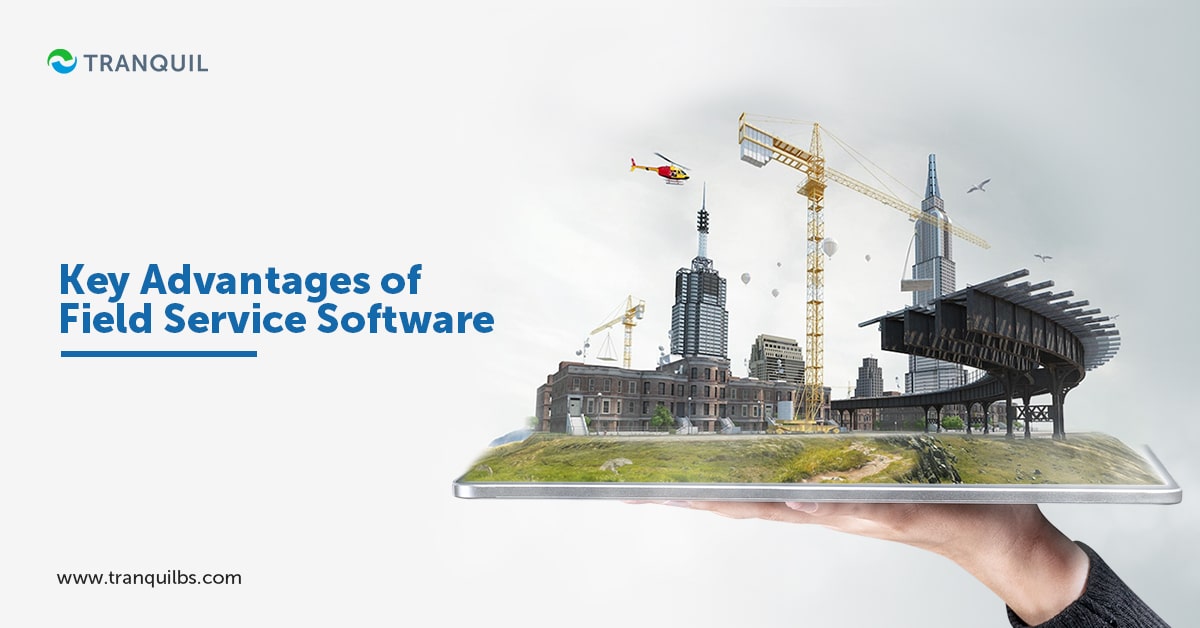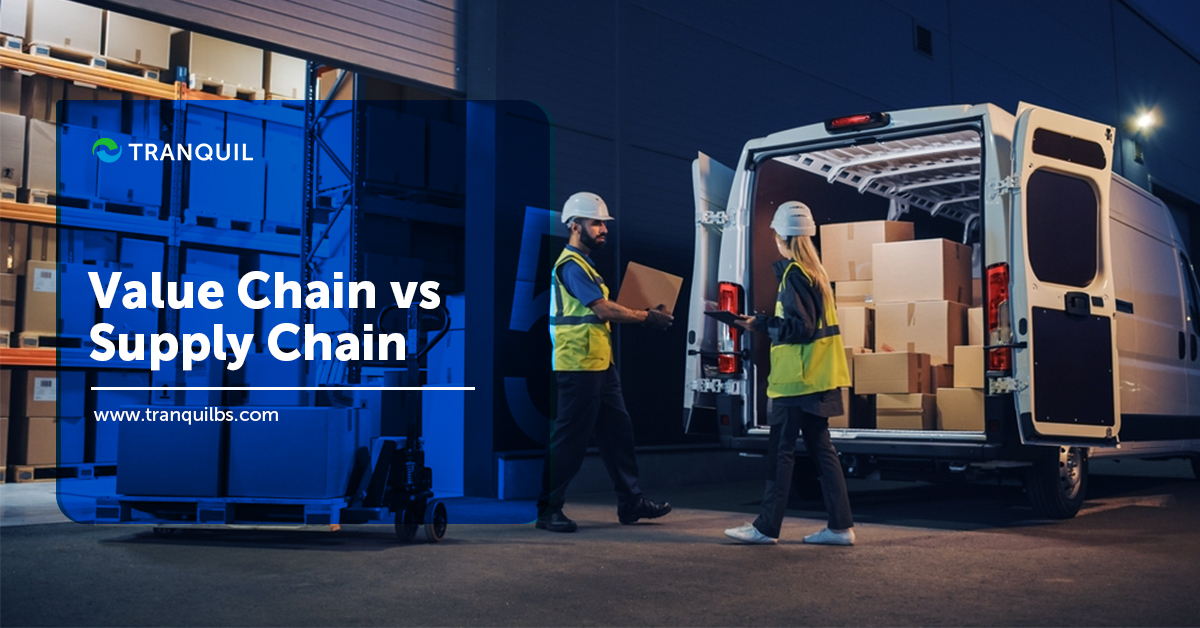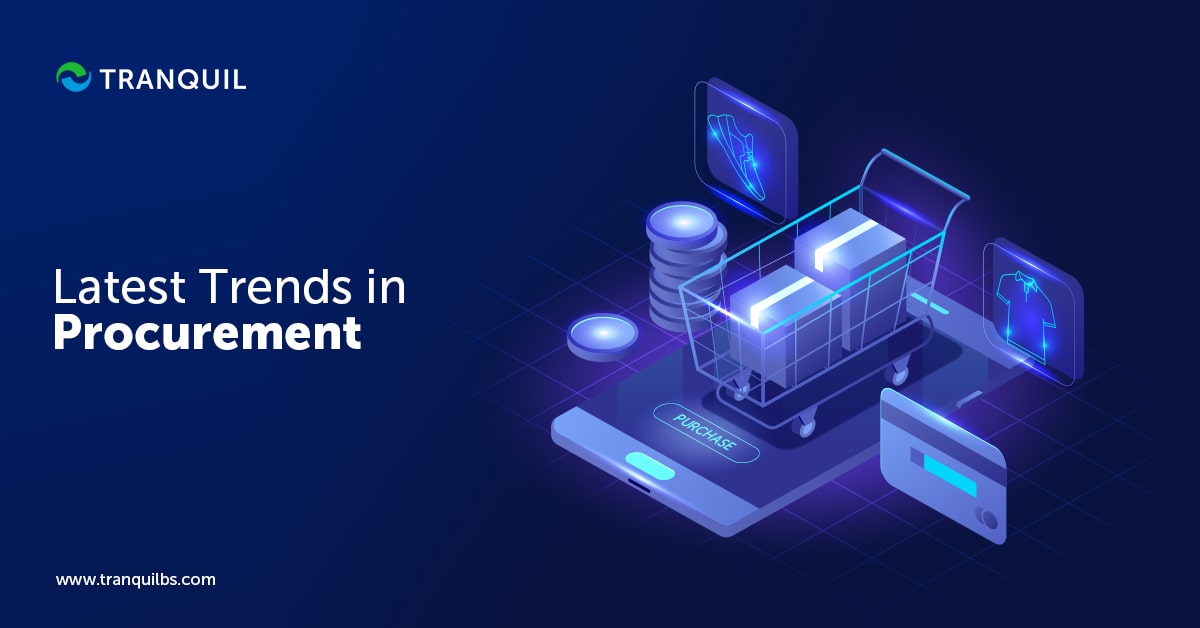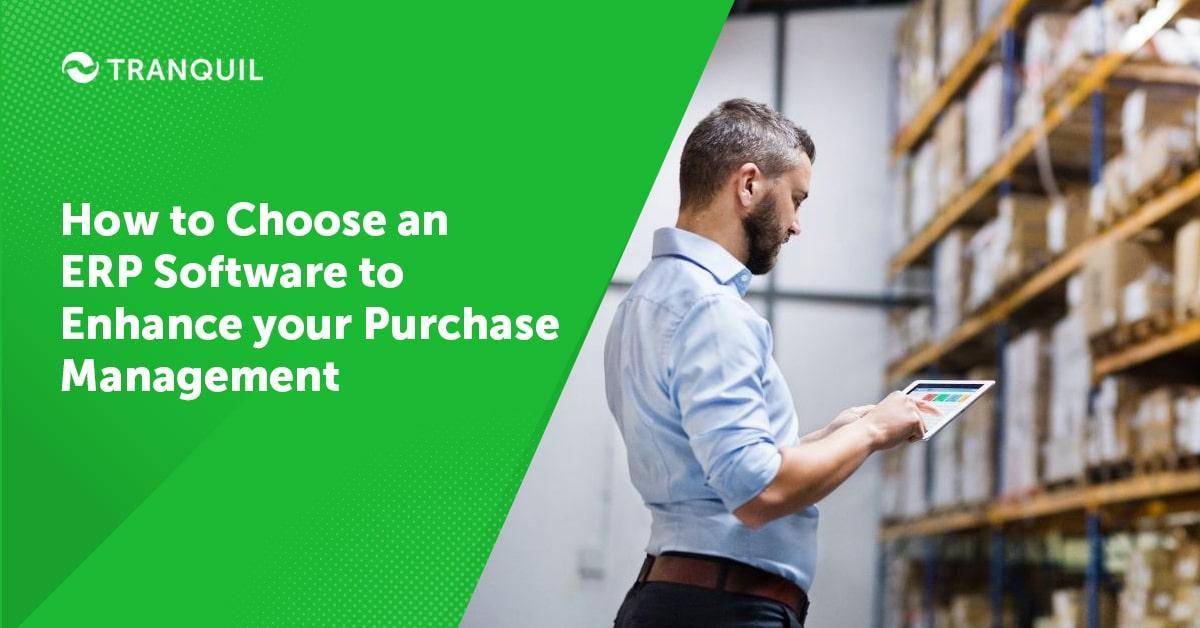
How to Choose an ERP Software to Enhance your Purchase Management
It’s a well-known fact that ERP implementation can help an organization to automate and streamline business processes, reduce human effort, minimize errors, and increase overall productivity and efficiency.
Staying on top of Purchase requests, monitoring inventory levels, and negotiating with vendors can be very daunting and even chaotic.
A manufacturing business comprises several activities and elements, and the Purchase Department has to ensure that everything is made available when and where it’s needed.
A robust ERP system like Tranquil helps to streamline the purchasing process by ascertaining that you always have adequate inventory level without over or under stocking; it smoothens the procurement process and simplifies vendor management, allowing you to focus on doing business more efficiently.
Let us see how an ERP software solution can improve purchase management within your business.
Benefits of ERP for Purchase Department:
1. Improved Purchase Order Management

The immense manual effort required to fill orders, assign tracking numbers, record purchase history, coordinate with vendors, etc., can be now handled by the inventory management module of your ERP software.
It automates all of these activities, providing precise, real-time information.
It monitors and tracks inventory levels round the clock, ensuring that you always have sufficient stock to continue production uninterrupted, and fulfill customer orders.
With just a couple of clicks, all the above-mentioned activities can be completed, and you can create a purchase order – saving time and effort, and making it error-free as well – ultimately leading to savings in cost.
2. Improved Relationships with Suppliers
Managing supplier relationships is not as simple as it sounds; an ERP can help in forging and maintaining better relationships, and also improve and streamline communication with vendors.
ERP software facilitates the creation of a robust database of suppliers, which is essential for all manufacturers – especially so if you order numerous parts from multiple suppliers.
ERP records and organizes all the information about your vendors or suppliers that you need – name, contact details, tax information, their product portfolio, and more.
This gives you precise vendor information at your fingertips, making it easier to place orders and negotiate deals.
ALSO READ: What are the Challenges in ERP Implementation?
The ERP also streamlines communication as it uses a portal that is integrated with your inventory and jobs currently in progress.
You can use this to simultaneously enquire about multiple items with several vendors, and receive quotes from them without entering information again.
With streamlined, open communication channels, your suppliers get the advantage of improved lead times with better predictive modeling and timely alerts to adjust quantities, etc.
This builds trust and respect with suppliers and enhances resource planning in your business.
It is essential that you have transparency in your business if you want to maintain good relationships with your suppliers, and a fully integrated ERP solution will do just that.
By balancing customer demands, purchases, and inventory controls with vendor capacity, the ERP purchasing system users in transparency into the system and forges a better understanding of the business needs of all stakeholders.
3. Save Time and Boost Productivity

As ERP software automates and streamlines processes and activities related to purchase, it helps save time, and improves productivity in your company; it also helps to improve relationships.
As we saw earlier, inventory management is automated by your ERP software, and it helps to maintain the appropriate levels of stocks.
The system alerts your Purchase Department of low inventory levels so that you can replenish the necessary items, or it can also be configured to send order requests to vendors automatically for you.
With increased productivity, your resources are utilized optimally, your expenses come down, and your business grows.
An efficient ERP solution like Tranquil can fast-track your success by delivering the requisite tools for streamlining, boosting productivity, and leveraging real-time data.
ALSO READ : Guide on How Do ERP Systems Work
Valuable Purchase Module Features

Every module in the ERP software contains features that help the business in streamlining that specific process.
Here are some of the most useful features contained in the purchase module in ERP:
- Purchase Orders – helps you to deliver finished products within deadlines. Purchase orders in ERP enable you to specify multiple delivery dates for various items.
- Contract Management – deadlines, payment schedules, and so on, as specified in contracts, are handled by the software, by sending alerts and reminders at appropriate times.
- Supplier Database – this keeps a complete record of vendors who provide specific items or services; information like contact data, tax ID, services or products offered, etc., are maintained.
ERP and IoT
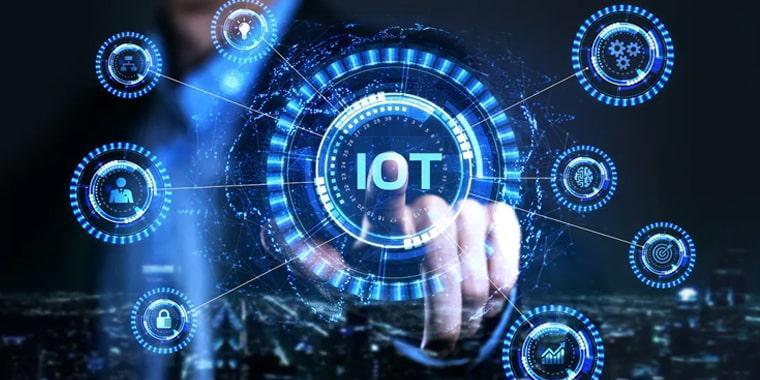
Businesses across industries are adopting technology increasingly.
Greater importance is today being given to connectivity, and guaranteeing that automated processes work cohesively to fulfill targeted tasks.
The ERP software facilitates comprehensive connectivity within an organization.
The internet of things or IoT is actually already a part of our everyday lives, without most of us even realizing it.
Your Smartphone has apps that collect information on your various activities and send this information to relevant businesses, and they use that data to deliver personalized services to you.
ALSO READ : Ways to Improve ERP with AI
What is the connection of IoT with Purchase Management?
In a networked system where you can scan, track and collect specific items, it’s IoT at work, and you can save on manual effort by simply assigning automated resources.
You will get more accurate results, track shipments and deliveries far more efficiently, serving your customers better.
It also has the capability to analyze purchase history, giving you an insight into what products your customers are interested in. When ERP and IoT combine, it empowers you to make data-driven, logical decisions that lead to profitability and business growth.
A Complete Solution
Implementing technology to lighten the load of purchase management activities makes good business sense.
ERP for purchase management helps to bring down inventory errors, deliver accurate sales analysis, provide exemplary customer service, and make sure that every purchase is accounted for.
It is a comprehensive solution that enables you to manage every aspect of your business and saves you money without compromising on quality.
ALSO READ: Influence and Importance of ERP System in Different Industries
Choosing the Right ERP System

There are dozens of vendors selling ERP software in the market today, so how exactly will you select the right package for your business, and that too one that helps you with your purchase management?
It can be a challenging task; your ERP solution should be a fit for your business processes – not the other way around.
If you expect that any ERP software will work for your organization, with your processes conforming to the software’s functionality, think again; it won’t happen that way.
An ERP is a disruptive and transformational business initiative, that will bring in big changes in the way your department functions. Ergo, this decision should not be taken lightly.
So how to choose the right ERP for Purchase System?
- Research and Query: There are innumerable ERP solutions in the market; do your due diligence, read independent reviews, ask your peers who have implemented the software recently, and look for feedback left by their customers, to come up with a shortlist of vendors or software. Remember, each solution is likely to have its own set of strengths and weaknesses, and the set of features may vary for all.
- Review and Analyze your Business: Do a SWOT analysis, and note down how you want your processes to be in the future, and what your requirements would be to get there. Using this as a basis, you can ask potential vendors to demonstrate how their product will be able to fulfill that need and be a fit for your business needs.
- Assess How Good a Fit an ERP is: while it is a business initiative, you need to know how good a technical fit the software will be for your business.
- Work out the Total Ownership Cost: most ERP vendors will downplay the cost of the software by showing you the benefits; however, it is essential that you know upfront, about all the expenses – the ‘hidden’ ones included before you make a deal with any vendor. The potential hidden costs include implementation charges, maintenance, and tech support, hardware upgrade, and more.
- Draw Up a Realistic Plan of Deployment: create a thorough plan that includes installation activities, testing, and end-user acceptance activities. Make sure that you come up with the plan before you hone in your software selection so that you can fully appreciate the financial, hardware, and human resource commitments you will need to successfully adopt the technology in your business. The implementation plan must be comprehensive and comprise activities to manage important organizational changes, numerous test iterations, data migration, workflow design, and so on.
- Track Potential Benefits: without measuring, you cannot achieve – and this holds true for ERP too. The whole point of implementing ERP is decreasing expenses, boosting productivity, increasing profitability, scaling for growth, and so on. It is crucial that you predict and measure benefits against important metrics to realize your maximum ROI on implementing ERP.
- Include your Team: The end users – your employees who will be using the ERP solution, should also be given a say in the choice of software, as they are the ones who will have to deal with the consequences of its shortcomings. Let them be part of the demo, and see how comfortable they are, whether they are able to work with it, and they find it useful.
This will also help you to ensure that everyone is on board – after all, nobody takes very kindly to change.
So now that you have read all about how the right ERP software can benefit your business, why not take a look to see how it actually works? Schedule a demo session for Tranquil ERP at your convenient date and time, and our representatives will be happy to answer all your queries.
Tranquil is a prominent cloud-based ERP software system that helps you to manage your projects and business work in a hassle-free way. Moreover, with this software, you can access your business data anywhere, any time. If you want to manage an ERP software system, you can get in touch with Tranquil software.

